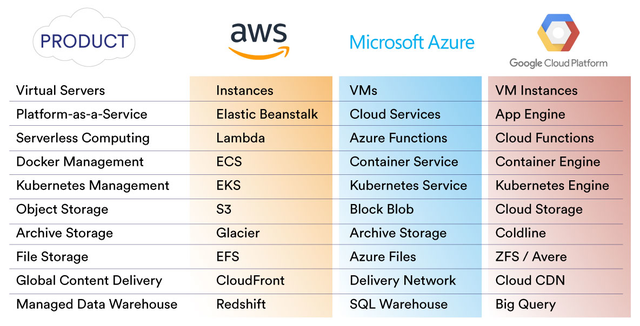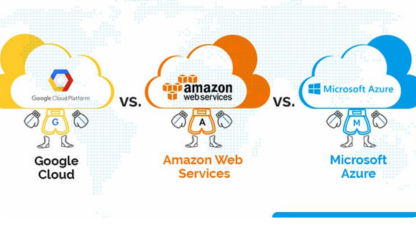Understanding Google Cloud Platform, Microsoft Azure, and Amazon Web Services
In today's digital landscape, cloud computing has become an integral part of businesses, offering scalability, flexibility, and cost-efficiency. Among the leading cloud service providers, Google Cloud Platform (GCP), Microsoft Azure, and Amazon Web Services (AWS) stand out for their comprehensive offerings and widespread adoption. In this article, we will explore these three cloud platforms, their features, advantages, and key considerations to help you make an informed decision for your cloud computing needs.
Overview of Google Cloud Platform (GCP)
Google Cloud Platform (GCP) is a suite of cloud computing services offered by Google. It provides a wide range of services, including virtual machines, storage, networking, machine learning, and data analytics. GCP's strengths lie in its robust infrastructure, extensive data analytics capabilities, and strong AI and ML offerings through Google's proprietary technologies like BigQuery and TensorFlow.
Overview of Microsoft Azure
Microsoft Azure is a cloud computing platform and service offered by Microsoft. It provides a comprehensive set of cloud services, including virtual machines, databases, storage, networking, AI, and IoT solutions. Azure's key advantages include its deep integration with Microsoft technologies, strong enterprise capabilities, and a vast global network of data centers.

Overview of Amazon Web Services (AWS)
Amazon Web Services (AWS) is a cloud computing platform offered by Amazon. It offers a broad range of services, including compute, storage, databases, machine learning, and IoT. AWS has been a market leader for years, offering a mature and extensive ecosystem, scalability, and a wide array of tools and services for different business needs.
Advantages of Google Cloud Platform, Microsoft Azure, and Amazon Web Services
- Google Cloud Platform:
- Robust infrastructure and global network
- Advanced data analytics and AI capabilities
- Deep integration with Google's technologies
- Microsoft Azure:
- Strong enterprise capabilities and integration with Microsoft ecosystem
- Comprehensive set of cloud services
- Global network of data centers
- Amazon Web Services:
- Mature and extensive ecosystem
- Scalability and flexibility
- Broad range of tools and services
Key Considerations for Choosing the Right Cloud Platform
- Specific business requirements and use cases
- Compatibility with existing systems and technologies
- Pricing models and cost-effectiveness
- Availability of required services and features
- Support and community resources
- Security and compliance measures
“AWS (Amazon Web Services) is a comprehensive and scalable cloud computing platform that provides a wide range of services, including computing power, storage, databases, analytics, and machine learning, to help businesses build and deploy applications with ease.”
Making the Right Choice for Your Cloud Computing Needs
In conclusion, Google Cloud Platform, Microsoft Azure, and Amazon Web Services are leading cloud service providers, each with its own strengths and advantages. The choice of the right cloud platform depends on your specific business requirements, existing infrastructure, and long-term goals. Evaluate the features, advantages, and considerations mentioned in this article to make an informed decision that aligns with your organization's needs and objectives.

